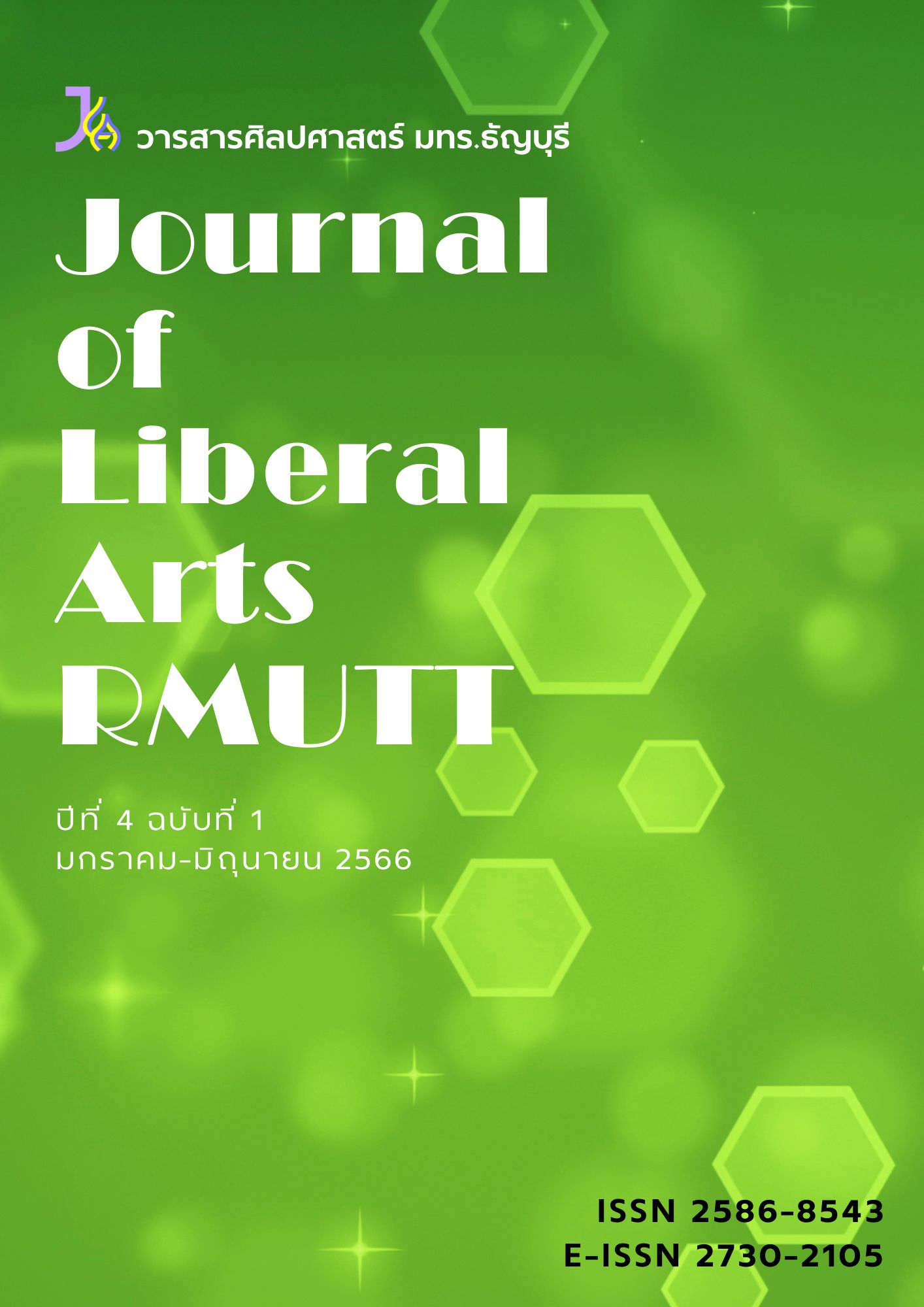Business Model of Smart Hotels for Business Travelers: Transformation of the Hotel Business in the New Era Context
Keywords:
Smart Hotel, Service Innovation, Technological DevelopmentAbstract
The hotel business represents a continuously expanding sector, wherein entrepreneurs continually strive to establish differentiation and competitive advantages through an increased reliance on technology. The integration of technological innovations is intertwined with novel service concepts and the development of services. This amalgamation results in the emergence of a novel business model known as the "smart hotel." Smart hotels are adept at responding to the ever-evolving behaviors of tourists, particularly those who seek a work-life balance through the fusion of travel and work in the contemporary global context. Consequently, the smart hotel business model is ideally suited to a context characterized by transformation brought about by modern technology. In conjunction with this, pivotal components in the development of the novel hotel business model include consumer behavior, technological readiness, and the acceptance of technology as factors influencing the quality of hotel services. These collectively serve as mechanisms that reflect the potential for hotel business development amid the changing landscape of the hotel industry in the new era.
References
กรมการท่องเที่ยว. (2566). Trend & Style กระแสท่องเที่ยวแบบไหน โดนใจนักท่องเที่ยวปี 2566. สืบค้น 25 มกราคม 2566, จาก https://www.facebook.com/Deptourism/
เจริญชัย เอกมาไพศาล. (2564). การจัดการบริการของธุรกิจการท่องเที่ยวและบริการ. กรุงเทพฯ: สถาบันบัณฑิตพัฒนบริหารศาสตร์.
จิตรลดา พันธุ์พณาสกุล และวรลักษณ์ ลลิตศศิวิมล. (2562). การสร้างความได้เปรียทางการแข่งขันด้วยเทคโนโลยีสารสนเทศ และนวัตกรรมของธุรกิจโรงแรมในประเทศไทย: การทบทวนวรรณกรรม. วารสารบริหารธุรกิจเทคโนโลยีมหานคร, 16(2), 19-39.
จุฑาพร บุญคีรีรัฐ และณัฐภาณี จริตไทย. (2563). การเปลี่ยนแปลงรูปแบบการท่องเที่ยวกับเทคโนโลยีสารสนเทศบนโลก ดิจิทัล. วารสารปัญญาภิวัฒน์, 12(2), 285-301.
ชนินทร์ พุ่มบัณฑิต. (2564). From High – Touch to High-Tech: นวัตกรรมขับเคลื่อนอุตสาหกรรมโรงแรม. BU Academic Review, 20(2), 173-184.
ทศพร มะหะมัด และมนัส สิทธิการ. (2563). ปัญญาประดิษฐ์การจัดการทรัพยากรบุคคลสมัยใหม่ในองค์กร. RMUTT Global Business and Economics Review, 15(1), 75-89.
ธงไชย สุรินทร์วรางกูล และสุธา พงศ์ถาวรภิญโญ. (2560). ธุรกิจโรงแรมในพื้นที่กรุงเทพมหานครกับการใช้เทคโนโลยีสารสนเทศเพื่อการตลาดและการส่งเสริมการขาย. วารสารวิชาการการจัดการเทคโนโลยีสารสนเทศและ นวัตกรรม, 4(1), 75-83.
ธนาคารไทยพาณิชย์. (2565). รู้จัก “Bleisure” เทรนด์มาแรงในธุรกิจท่องเที่ยว. สืบค้น 12 มกราคม 2566, จาก https://www.scb.co.th/th/personal-banking/stories/business- maker/bleisure.html
ธนาคารทหารไทยธนชาต. (2566). ttb analytics คาดรายได้การท่องเที่ยวไทยปี 2566 เพิ่มขึ้น 1 ล้านล้านบาทจากปีก่อน. สืบค้น 20 มกราคม 2566, จาก https://www.ttbbank.com/th/newsroom/detail/travel-thailand-2566
ธาดา สมานิ. (2562). นวัตกรรมบริการของอุตสาหกรรมโรงแรมไทย. วารสารการบริการและการท่องเที่ยวไทย, 14(1), 103 – 110.
วริทธิ์นันท์ โฆษิตเจริญสุข. (2565). ธุรกิจโรงแรมจะเดินต่ออย่างไร…เมื่อนักท่องเที่ยวอาจไม่เหมือนเดิม. สืบค้น 15 มกราคม 2566, จาก https://www.scbeic.com/th/detail/product/hotel_131222
วลัยลักษณ์ รัตนวงศ์, ณัฐธิดา สุวรรณโณ, และอนุ เจริญวงศ์ระยับ. (2555). ปัจจัยที่ส่งผลต่อนวัตกรรมการบริการสำหรับธุรกิจท่องเที่ยวของประเทศไทย. วารสารสหวิทยาการวิจัยฉบับบัณฑิตศึกษา, 1(1), 61-68.
ศูนย์พัฒนาวิชาการด้านตลาดการท่องเที่ยว. (2566). ไม่ใช่เท่าเดิมแต่ต้องดีกว่าความคาดหวังต่อโรงแรมที่พักของนักท่องเที่ยวหัลังยุคโควิด-19. สืบค้น 30 มีนาคม 2566, จาก https://tatacademy.com/th/publish/articles
สำนักเลขาธิการนายกรัฐมนตรี. (2566). ครม. เห็นชอบแผนพัฒนาการท่องเที่ยวแห่งชาติฉบับที่ 3 พ.ศ. 2566-70. สืบค้น 25 มกราคม 2566, จาก https://www.thaigov.go.th/news/contents/details/63364
อมรรักษ์ สวนชูผล. (2563). การจัดการองค์กรธุรกิจกับปัญญาประดิษฐ์เพื่อความอยู่รอดทางธุรกิจ. วารสารวไลยอลงกรณ์ปริทัศน์ (มนุษยศาสตร์และสังคมศาสตร์), 10(3), 155-164.
อัญชิสา ชูศรี. (2557). นวัตกรรมบริการการแสดงความรับผิดชอบต่อสังคมและการตลาดแบบปากต่อปากที่ส่งผลต่อการตัดสินใจเข้ารับบริการหอผู้ป่วยโรงพยาบาลเอกชนในเขตกรุงเทพมหานคร. (การค้นคว้าอิสระปริญญา บริหารธุรกิจบัณฑิต). มหาวิทยาลัยกรุงเทพ, กรุงเทพฯ. สืบค้น 20 มกราคม 2566, จาก
http://dspace.bu.ac.th/handle/123456789/1915
Bazzano, F., & Lamberti, F. (2018). Human-robot interfaces for interactive receptionist systems and way finding applications. Robotics, 7(3), 56.
Choi, Y., Oh, M., Choi, M., & Kim, S. (2021). Exploring the influence of culture on tourist experiences with robots in service delivery environment. Current Issues Tourism, 24, 717–733.
Ding, J., Lin, R. Z., & Lin, Z. Y. (2018). Service robot system with integration of wearable Myoarm band for specialized hand gesture human–computer interfaces for people with disabilities with mobility problems. Computers & Electrical Engineering, 69, 815-827.
Furseth, P. I., & Cuthbertson, R. (2013). The service innovation triangle: a tool for exploring value creation through service innovation. International Journal of Technology Marketing, 8(2), 159-176.
Go, H., Kang, M., & Suh, S.C. (2020). Machine learning of robots in tourism and hospitality: Interactive technology acceptance model (iTAM) Cutting edge. Tourism Review, 75, 625–636.
Herédia-Colaço, V., & Rodrigues, H. (2021). Hosting in turbulent times: Hoteliers’ perceptions and strategies to recover from the Covid-19 pandemic. International Journal of Hospitality Management, 94(4), 1-12.
Jaremen, D., Jędrasiak, M., & Rapacz, A. (2016). The concept of smart hotels as an innovation on the hospitality industry market-case study of Puro Hotel in Wrocław. Economic Problems of Tourism, 36(4), 65-75
Kaushik, A. K., Agrawal, A. K., & Rahman, Z. (2015). Tourist behavior towards self-service hotel technology adoption: Trust and subjective norm as key antecedents. Tourism Management Perspectives, 16, 278-289.
Kim, J. J., & Han, H. (2022). Hotel Service Innovation with Smart Technologies: Exploring Consumers’ Readiness and Behaviors. Sustainability, 14(10), 5746.
Lei, C., Wong, E., Gao, X., & Gao, Y. (2021). The Effects of AI Robot Service on Hotel Customer’s Service Experience Satisfaction and Repurchase Intention. Forest Chemicals Review, 896-915.
Luo, X., & Pan, Y. (2021). A Study on the Customer Experience Design through analyzing Smart Hotels in China. Journal of the Korea Convergence Society, 12(3), 115-124.
Meidute-Kavaliauskiene, I., Çiğdem, Ş., Yıldız, B., & Davidavicius, S. (2021). The Effect of Perceptions on Service Robot Usage Intention: A Survey Study in the Service Sector. Sustainability, 13, 9655.
MICE Intelligence Team. (2020). ทำความรู้จักกับ “Bleisure Travel” เทรนด์การเดินทางที่ผสมผสานเรื่องธุรกิจและ การพักผ่อนเข้าไว้ด้วยกัน. สืบค้น 15 มกราคม 2566, จากhttps://intelligence.businesseventsthailand.com/en/blog/bleisure-travel
Miočić, B. K., Korona, L. Z., & Matešić, M. (2012). Adoption of smart technology in Croatian hotels. In 2012 Proceedings of the 35th International Convention MIPRO. (pp. 1440 – 1445).: IEEE.
Murphy, J., Gretzel, U., & Pesonen, J. (2019). Marketing robot services in hospitality and tourism: The role of anthropomorphism. Journal of Travel Tourism Marketing, 36, 784–795.
Ramgade, A., & Kumar, A. (2021). Changing trends of hospitality industry: Emergence of millennials and gen Z as future customers and their influence on the hospitality industry. Vidyabharati International Interdisciplinary Research Journal, 12(1), 336-342.
Ramoly, N., Bouzeghoub, A., & Finance, B. (2018). A framework for service robots in smart home: an efficient solution for domestic healthcare. IRBM, 39(6), 413-420.
Rosete, A., Soares, B., Salvadorinho, J., Reis, J., & Amorim, M. (2020). Service robots in the hospitality industry: An exploratory literature review. In International Conference on Exploring Services Science (pp. 174-186). Springer: Cham.
Salim, I. M., & Sulaiman, M. (2011). Organizational learning, innovation and performance: A study of Malaysian small and medium sized enterprises. International Journal of Business and Management, 6(12), 118.
Seyitoglu, F., & Ivanov, S. (2020). A conceptual framework of the service delivery system design for hospitality firms in the (post-) viral world: The role of service robots. International Journal of Hospitality Management, 91, 102661.
Sharma, D. (2016). Enhancing customer experience using technological innovations: A study of the Indian hotel industry. Worldwide Hospitality and Tourism Themes, 8(4), 469 - 480.
Shin, K., & Kang, J. (2020). Reducing perceived health risk to attract hotel customers in the COVID-19 pandemic era: Focused on technology innovation for social distancing and cleanliness. International Journal of Hospitality Management, 91, 1-9.
Starcevic, S., &Konjikusic, S. (2018), Why Millennials as Digital Travelers Transformed Marketing Strategy in Tourism Industry, International Thematic Monograph Tourism in Function of Development of the Republic of Serbia-Tourism in the Era of Digital Transformation. University of Kragujevac.
World Health Organization. (2022). WHO Coronavirus (COVID-19) Dashboard. Retrieved April 17, 2023, from https://covid19.who.int/
Xu, X. (2018). Research on the construction and development of smart hotel from the perspective of serving customers. In 2018 2nd International Conference on Education Science and Economic Management (ICESEM 2018) (pp. 975-978). Atlantis Press.
Downloads
Published
How to Cite
Issue
Section
License
Copyright (c) 2023 Journal of Liberal Arts RMUTT

This work is licensed under a Creative Commons Attribution-NonCommercial-NoDerivatives 4.0 International License.









